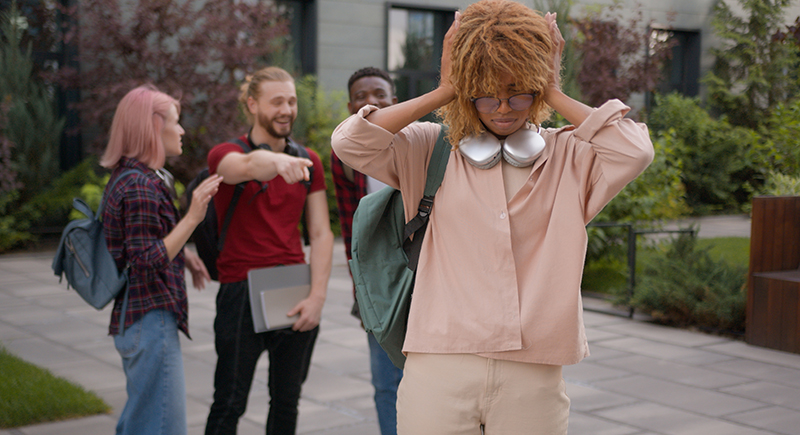10 Smart Tips for Dating Someone Older Than You
Dating someone older often brings questions, opinions, and unspoken expectations. Some parts will be easy, others less so, but with honest communication and a willingness to look at things clearly, you can build something lasting. Here’s what helps when you’re navigating this kind of relationship with a clear head and an open attitude.
Ignore Outside Reactions

Credit: iStockphotos
People will notice if there’s an age gap, and sometimes they don’t keep that to themselves. You might hear unsolicited comments or feel the weight of assumptions in everyday situations. It’s rarely productive to respond. Protect your peace by focusing on the relationship itself, not on how it’s interpreted by people who don’t know either of you well.
Watch the Power Balance

Credit: iStockphotos
Older partners might hold more decision-making sway without intending to. More financial stability or life experience can shift the dynamic. If your input starts seeming optional or ignored, that’s something to address directly. A relationship that works long-term needs both people to contribute meaningfully.
Notice If Age Is Overemphasized

Credit: iStockphotos
A few light comments about your age aren’t alarming—jokes like “You were in diapers when that came out” or “I feel ancient around you” can be harmless in context. But if it becomes a constant theme, it may signal something deeper. Hearing things like “You’re too young to understand” can chip away at your individuality.
Be Clear About Plans

Credit: Syda Productions
Do not be afraid to inquire about what your partner sees in their future and share the things you want. Avoid dancing around big topics like marriage or kids. You don’t need exact dates, but vague hope isn’t a plan. Clarity early on makes later decisions a lot easier to navigate.
Stop Pretending You Know More

Credit: pexels
Trying to fast-track maturity can appear necessary when your partner is more composed, experienced, or established. That pressure shows up in small choices—staying quiet instead of asking a question, pretending to understand a reference, or downplaying insecurity to avoid seeming young.
Understand Their Past

Credit: pexels
The older person in a relationship may have a longer dating history, and that includes marriages, children, or divorces. These aren’t red flags—they’re just part of their life. Pay attention to how they describe past relationships. Are they thoughtful and accountable? Or do they blame everyone else?
Discuss Finances Early

Credit: Getty Images
If one person earns significantly more, unspoken expectations can cause tension. Talk clearly about who pays for what—trips, rent, groceries—before resentment builds. A casual assumption about money can quietly shift into a power imbalance.
Handle Generational Gaps Lightly

Credit: Getty Images
You’ll miss each other’s references sometimes. A TV show that shaped their childhood might mean nothing to you. Research found that shared media experiences can strengthen emotional bonds, but mismatched references don’t hurt closeness if both partners stay curious.
Balance Social Circles Without Pressure

Credit: Prostock-studio
Age gaps often mean different friend groups, and merging them isn’t always seamless. You might find yourself in rooms full of people with kids in college while your friends are still figuring out their first apartments. Avoid forcing integration. It’s healthy to maintain your own social life while being curious, without pressure, about theirs.
Talk To People You Trust

Credit: Farknot Architect
Being in love can cloud how you interpret everyday behavior. What comes off as normal might actually be a pattern you’ve stopped questioning. An outside perspective—especially from someone who knows you well—can reveal things you’re too close to notice. Keeping friends shut out doesn’t just protect the relationship—it can also shield problems you’re not ready to see.
Appreciate the Support

Credit: iStockphoto
Some younger partners say they’re drawn to more mature people because of the emotional steadiness. That lines up with studies showing a preference for reliability over intensity, especially in early adulthood. If your partner helps you process situations with calm instead of chaos, there’s no need to apologize for liking that.
Clarify Values and Boundaries

Credit: Getty Images
People raised in different decades bring different ideas about privacy, monogamy, or how a relationship should function. These aren’t always visible at first. Address these topics instead of assuming you share the same definitions. A little confusion now beats a full breakdown later.
Don’t Keep It Hidden

Credit: Getty Images
If you’re reluctant to tell people about the relationship, ask yourself what you’re protecting. Some discomfort is normal, especially if you’ve faced judgment before. But long-term secrecy comes with its own problems. Privacy and hiding aren’t the same thing. If the relationship is meaningful, you should be able to say it out loud.
Check In with Yourself

Credit: Getty Images
In relationships with a wide age gap, one partner’s established career or lifestyle can make the other doubt their growth. That feeling tends to build up slowly, in subtle comparisons. As time passes, it can shrink your sense of progress or make your accomplishments look small.
Keep It Light Sometimes

Credit: Canva
Don’t let every interaction turn into a check-in, negotiation, or debate. Serious conversations matter, but so does laughing at dumb memes or making plans that don’t have an agenda. Let things be fun sometimes. Balance gives a relationship room to breathe and a chance for the two of you to get to know each other better.